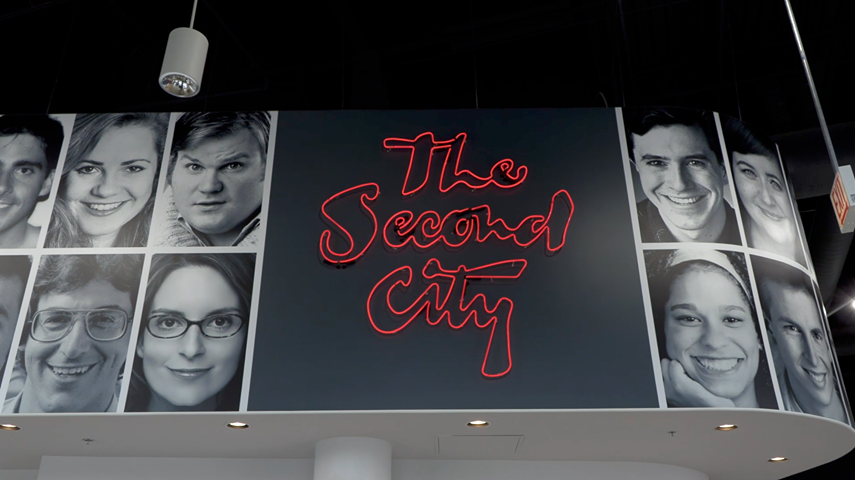Video production: Andrew Kennedy Lewis
Improv is learning by doing, says Kelly Leonard, executive vice president of Second City Works. In business, improv games are useful exercises that can help help refine communication, listening and knowledge-gathering skills for individuals, and, in turn, strengthen the organization.
Read the transcript of Leonard’s interview below:
I’ve worked at Second City for 31 years. Most of that time, I was producing the stages. So I hired people like Tina Fey and Amy Poehler and Steve Carell and Steven Colbert, all very exciting stuff. In 2015, I wrote a book called, “Yes, And,” which is about how we take our improvisational practices and comedy skills into the business world. And I started working with different universities and other partner organizations, basically to look at all the different ways improvisation can make people more effective offstage, not in a theater context, but at your job, at home, in a hospital, all those other kinds of places.
Because really, improvisation is like human being practice, so if your job entails you working with other human beings, improv can make you better at that. A lot of people talk about this work/life thing and I don’t see the distinction between work and every other area of human experience. In fact, I think it’s a problem. When we decide that somehow in our workspace, we shouldn’t take all the insights that we learn over history and in universities and all that. It’s an artificial distinction in my opinion.
So one of the things that we know about human beings is that we’re not very focused and we’re not good listeners and if we can be more focused and if we can listen more effectively, that really helps in building good relationships and understanding what real problems are and how people are trying to communicate with you. So we have a lot of exercises and games, especially for beginners, that allow them to understand the various ways in which they aren’t focused and don’t listen and give them practice at being more effective at it.
So there’s a game called Red Ball, where we have an imaginary ball and you have to toss it across to someone, which requires you to make eye contact and to be looking at where this ball might go. You have to thank the person for the ball and that goes around the room. And then maybe we add a blue ball and then maybe we add a knife and then maybe we add something else. And so suddenly that’s, this is how real life works, right? Information is coming at us in so many different ways and we have to juggle all of this stuff. And so we have to be aware both of how we’re perceiving the world, how we’re being perceived.
And it’s funny that one of the things I think that’s most effective about improv exercises is they are games. They’re sort of banal, so we’re not thinking about great life lessons, so we’re just doing the exercise. But remember, improvisation is a pedagogy, so you learn by doing. So once you unwrap the lessons from here, as our teachers do really effectively with the people after they play the game, you start to realize, oh, this is what happens to me in a meeting, when everyone’s talking at once and no one’s hearing each other. So playing the games gives you more practice in the things you’re dealing with every single day in the office.















